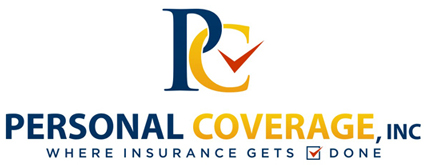
Vacation Rental is a Business
Renting your property is a business activity. Perhaps it does not feel like work but it is a business. Making a profit does not define a business. Many businesses loose money. A business does not have to have a formal name or corporate structure. It can a one person sole proprietorship or a corporation with shareholders.
Your local laws and your insurance policy have a lot to say about what a business is or is not. If you are going to be in business, then be sure your enterprise is in compliance and protected.
Insurance is a contract
No surprise here either but lets go a step further. Contracts require certain elements to be valid. Insurance is a contract of good faith and requires accurate representation of facts. Misrepresented facts can void a contract. Relying on a homeowners or rental property insurance policies, that do not accommodate short term rental activity, is very risky and opens up a host of problems.
Insurance companies have underwriting guidelines, policies placed in violation of those guidelines run a significant risk. Disclosure of your situation to an agent, who in turn misrepresents the facts or simply makes a mistake, could spell problems for you. Collecting from an agent or brokers errors and omissions policy is time consuming. Review your applications and do some homework on your insurance company. Is there mention of short term rentals in their target market?
You buy insurance to transfer risk not absorb more. A cheap policy that will not work cannot be compared to something more expensive that will work when needed. Know you insurance will work for rental and non rental losses. There is no need to guess.
Insurance Coverage Terms
Insurance has its own language and it can be confusing if your are not use to it. Coverage terminology is only part of the story. It is typical for policies to have conditions in them as well. These conditions spell out things like claim reporting, arbitration and situations in which other insurance is applicable to a loss. Owing and reading a policy is the only way to really know about your purchase.
Because rental activity is a business, personal insurance will likely not come to your aide for liability and certain property losses. Homeowners insurance was designed for owner occupied residences. It can accommodate some rental exposure but not much. Commercial insurance is of course very different. Policy language is different because the nature of the exposure is different. Commercial insurance matches the activity. Short term rental businesses can be all commercial or a mixture of commercial and personal.
As a rule of thumb, purchase and insurance form that handles the most hazardous activity. This means purchasing commercial insurance for short term rentals. Straightforward enough but there is a rub. Many commercial insurers do not insure one to four family rental properties. Whole policies have been designed for this segment but a problem arose. Insurers who had insured one to four family rentals for years were caught off guard when annual leases were not secured. These insurers would not, and do not, want to insure homes rented for a few days at a time. They were ok with a limited amount of weekly rentals but not daily rental activity.
The “Named Insured” Difference
One fix was for short term rental companies to offer their own insurance for hosts using their service. Not a bad idea but more problems can arise. What if your current homeowners insurance company would not have written the policy had they known of the rental activity? Is there a risk even a non-rental claim will have problems? Hard to say really but it does come back to your application mentioned above.
Having your name on a vacation rental or short term rental policy is the best way to go. It makes you the customer and gives you direct access to claim representatives. When you are part of a “group” program and an “additional insured” you are not the main client and consequently take on a second class role. It is always better to have a policy in your files for full review and not just a certificate of coverage from a group program.
Personal vs. Commercial Insurance
When you do the comparison factor in a few things. First, commercial insurance is the right product, personal is not. Cost is not going to get around that fact. Second, how much will your claim cost if you have no insurance?
It would make sense to compare two personal products to each other. It would also stand to reason that comparing two commercial products has merit. Comparing personal and commercial is not as easy. Using price to compare unequal products requires a review of value.
What value do you derive from buying the right insurance product? If the right product is the same price or even cheaper, the value decision is easy. But what if the right product costs more? We see the dilemma but that dilemma goes away if the cheaper product will not do the job.
Would you buy a cheaper product knowing that it would not likely work? Sounds crazy but we both know this happens all the time. Buyers put their heads in the sand and try to pretend that a cheap product with big flaws is the best way to go because of how cheap it is.
Trial: Not a great way to get paid
Taking an insurance shortcut can lead to legal issues. Arguing coverage in court is expensive and slow. Build the cost of insurance into your business. Buy insurance that is specifically for your rental activity.
Better yet, buy insurance that will work for personal and business use. We offer one product, a commercial insurance product made for vacation and short term rental properties. It will work for you in a business and non business capacity. There is no worrying about underwriting guidelines due to the use of the property.
We have insurance companies that can use personal insurance products for vacation rental. We choose not to use these products because we know situations change and insurance needs to be prepared. Personal products do not lend well to short term rental exposures. What if the rental activity changes? What if the underwriting guidelines change?
We want you to have the most flexible coverage without the worry. If your serious about renting, owning your own commercial insurance is the way to go and offers superior advantages to personal or group programs offering only per rental coverage.
